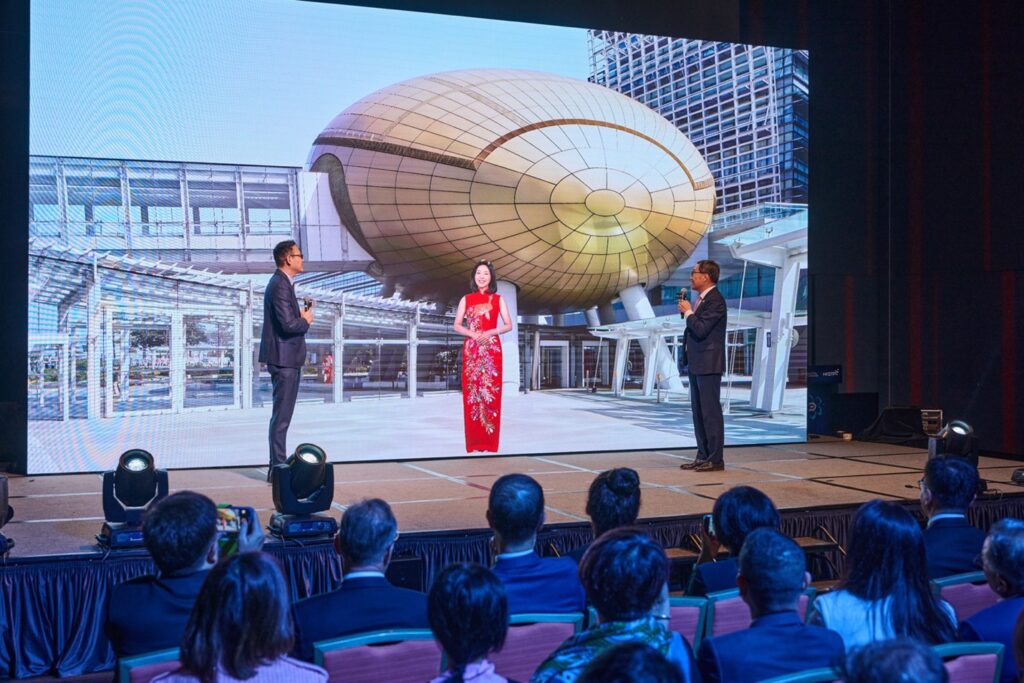Digital Domain has earned quite a stellar reputation over the years for its cutting-edge visual effects and the work it has done in advancing digital human technology through the facility’s creative endeavors and its proprietary technology. The Hollywood studio, whose majority ownership was acquired a little more than a decade ago by Hong Kong’s Sun Innovation, has continued to innovate on both fronts. Recently, Digital Domain partnered with Hong Kong Science and Technology Parks Corporation on an R&D center to attract and foster top talent in the areas of digital humans, VFX, and AI-powered video production, in hopes that the effort will continue to bolster Hong Kong’s growth as an entertainment leader.

Digital Domain has built an amazing reputation over the years for its stunning visual effects work in film, episodics, commercials, music videos, and mixed reality projects since its founding in 1993—work that netted the studio a collection of Oscar nominations and wins for Best Visual Effects, along with multiple BAFTAs. Its advertising division has achieved similar success with Clios, AICP Awards, Canne Lion Awards, and more, not to mention Grammys (for music videos) and MTV Music Video of the Year Awards for the division.
Nevertheless, the studio is not a one- or two-trick pony. Digital Domain has also garnered a number of Scientific and Technical Achievement Awards for its various technologies—tracking, compositing, volumetric rendering, and fluid simulation system. While its advancements in film VFX continue, the studio has concurrently built up its creative and technical know-how related to digital humans, starting with Benjamin Button in 2008, followed by Tupac, Martin Luther King, Joe Montana, David Beckham, and many others.
A good deal of that virtual human technology has come out of the studio’s Digital Human Group. The studio is now bringing its technological experience to Hong Kong. Recently, Digital Domain established a state-of-the-art R&D center there, where it will join forces with Hong Kong Science and Technology Parks Corporation (HKSTP) to continue advancement of virtual human technology, with the goal of transforming the entertainment industry. The R&D center will be located in Hong Kong Science Park, serving as a hub for collaboration, where it hopes to attract top talent from around the globe and foster partnerships with leading academic institutions and industry experts.
HKSTP was established in 2001 and hosts a plethora of different technology companies.
The center will focus on advancing this growing digital frontier through cutting-edge technology across three main areas:
- Virtual humans: Developing an advanced AI-driven virtual human that can engage in natural and complex interactions to enhance the user experience in service-oriented environments. This interaction will introduce a brand-new concept that highlights the potential of AI-powered virtual human hospitality services for travelers to interact with in the near future.
- Visual effects: Utilizing AI technology to create more dynamic, cost-effective, and high-quality visual effects for the production of films, TV series, and commercial advertisements.
- AI-powered video production: Developing innovative tools that leverage AI to produce 3D asset-based video content in order to streamline the content creation workflow in media production.
“As we know, AI has revolutionized the film and entertainment industry, transforming filmmaking, visual effects, and animation. Digital Domain is a testament to this, with its groundbreaking use of AI technology as a tool for better storytelling and immersion. By harnessing the power of AI, we can create truly exceptional products that push the boundaries of imagination. This is the future we envision for the film and entertainment industry, where humans and AI work hand in hand to create unforgettable experiences,” stated Professor Dong Sun, Secretary for Innovation, Technology, and Industry, in a press release.
Digital Domain is headquartered in Los Angeles, with locations across the US and Canada, as well as India and Asia, including Hong Kong. Despite its past and present successes, the company—founded by James Cameron, Stan Winston, and Scott Ross—was plagued by well-publicized financial troubles. After the company’s roller-coaster ride that included an IPO and a Chapter 11 bankruptcy protection filing, Sun Innovation of Hong Kong acquired a majority ownership in 2013.
Since that time, Hong Kong has been strengthening its bond with the studio. According to the release, Digital Domain aims to further strengthen Hong Kong’s status as the “Oriental Hollywood.” During the 1980s, Hong Kong was known as the “Hollywood of the East” due to the popularity of its films in overseas markets, especially in Japan, South Korea, and southeast Asia. Over the past two decades, the Hong Kong film industry has been trying to re-establish itself and regain that title.
With the support of HKSTP, Digital Domain said it plans to invest approximately HK$204 million (over US$26 million) by the end of 2029 to expand its staff in Hong Kong and further develop AI technologies for virtual humans, visual effects, and video production, leading to commercialization in Hong Kong. Digital Domain is also helping to push Hong Kong forward in becoming an international hub for AI and AI virtual human technology R&D.
A launch ceremony for the R&D center was held last month and featured another appearance of virtual Teresa Teng, a hologram created by Digital Domain of the popular deceased Taiwanese pop star, who has made several public appearances of late.